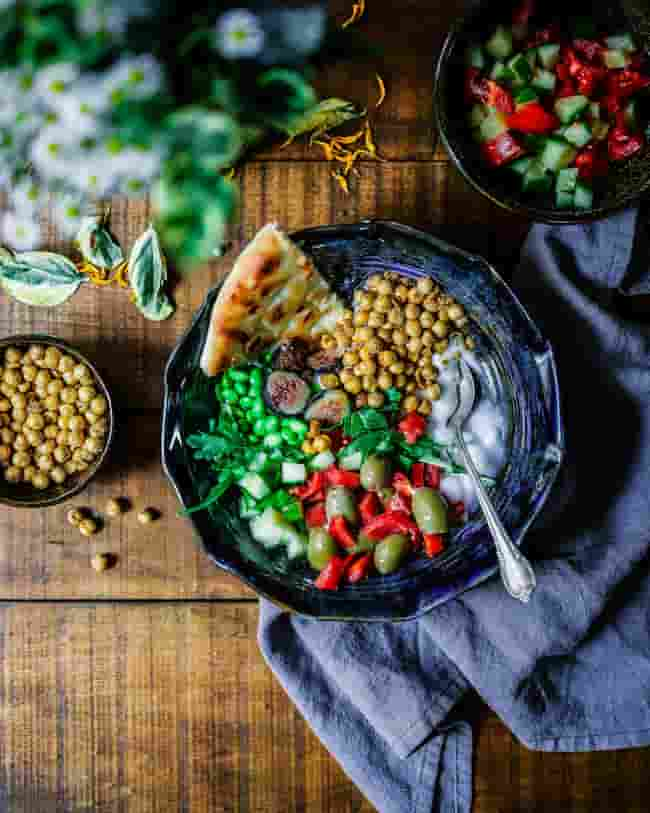Which Foods are Rich in Potassium?
A diet rich in potassium helps to lower blood pressure and reduces the risk of developing kidney stones. You can increase your potassium intake by eating a well-balanced diet that includes a variety of fruits, vegetables, beans, and legumes. Potassium is present in virtually all foods, but some have higher concentrations than others. The following 20 foods are good sources of potassium:
List of Potassium Rich Foods and their Functions and Health Benefits:
Potassium is a mineral found in varying amounts in almost all foods. Although potassium is present in sodium, the two minerals work antagonistically and too much sodium can cause potassium loss through urine.
Cellular functions require precise levels of potassium and even small changes (0.1 percent) may alter the function of cells. Some experts estimate that 90 percent of Americans are at risk for developing a chronic low-grade potassium deficiency due to poor dietary habits, while others believe this figure may be as high as 98 percent.
Thus, it may be wise to ensure you have an adequate intake of potassium-rich foods daily, especially if you already have any conditions related to fluid retention, blood pressure regulation, or kidney function.
Potassium-rich foods can come from both plant sources and animal sources. Animal sources are generally better because they have higher amounts of bioavailable potassium, but the majority of Americans do not eat sufficient levels of quality meat. The following list includes many excellent dietary sources for potassium, along with their respective potassium content in milligrams (mg):
– Kelp: 1,000 mg per 100 grams
– Spinach: 839 mg per 100 grams
– Pumpkin seeds: 631 mg per 100 grams
– Swiss chard: 588 mg per 100 grams (1 cup) raw or 78 mg (1 cup) boiled (drained weight)* *Calculated for Swiss chard without added salt; other nutritional data based on raw weight
– Avocado: 480 mg per 100 grams (about one whole)
– Bananas: 422 mg per 100 grams (about half a large banana)
– White mushrooms: 184 mg per 100 grams (1 cup, whole)
– Pinto beans: 175 mg per 100 grams (1 cup, boiled) or 809 milligrams for mature dry beans without salt added* *Calculated for pinto beans without added salt; other nutritional data calculated for boiled pinto beans and drained weight.
Note that the amount of potassium falls significantly when dried beans are cooked in salted water. It’s best to avoid salt when cooking dry beans. Cook them in freshwater with no salt and add salt only after they are cooked and ready to eat if desired.
– Chickpeas: 160 mg per 100 grams (1 cup, boiled)
– Artichoke: 159 mg per 100 grams (about one whole medium artichoke) or 77mg for 1 cup of cooked artichoke hearts* *Calculated for artichokes without added salt; other nutritional data based on raw weight and include the edible portion of the artichoke such as the pulp, not just the discarded leaves.
According to USDA food composition databases, some other excellent sources of potassium include: Almonds, Roasted with no salt added: 358 milligrams per 100 grams Pumpkin seed kernels, roasted: 317 milligrams per 100 grams French beans, boiled: 290 milligrams per 100 grams Unsweetened
cocoa powder: 266 mg per 100 grams Navy beans, boiled: 258 mg per 100-gram Lentils, boiled: 195 mg for 1/4 cup Tomatoes, raw: 181 mg for 1 medium Granny Smith apple with the skin on 172 milligrams per 100 grams Common white mushrooms, raw or boiled without salt: 157mg per 100 grams White potato with the skin on and baked: 129 milligrams for a small (2-1/2″ to 3-1/2″ dia) whole potato* Russet potatoes have less potassium than red potatoes. *Calculated for a small boiled russet potato without salt; other nutritional data is for raw weight and include skin.
